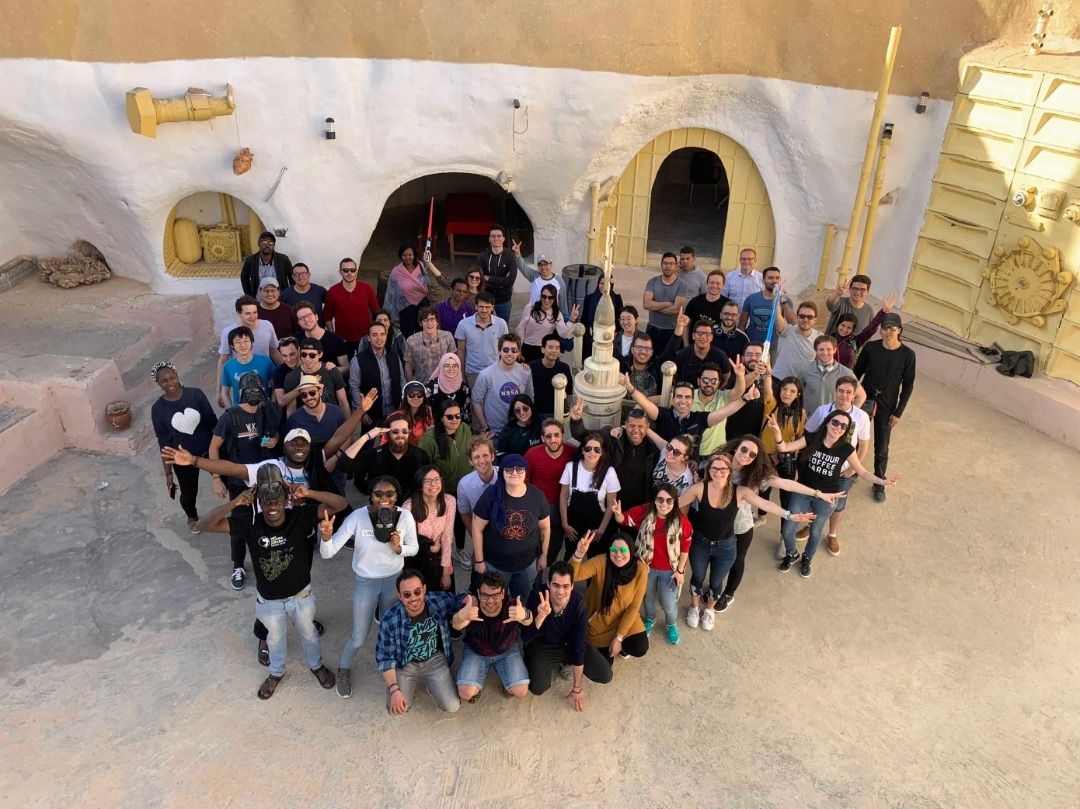BioNTech acquired Tunis-born AI startup, InstaDeep for $680 million
The acquisition of InstaDeep supports BioNTech’s strategy to build world-leading capabilities in AI-driven drug discovery.

With $680 million, German vaccine producer, BioNTech has acquired Tunisian artificial intelligence startup, InstaDeep. This will enable the biotech to leverage machine learning to enable the drug discovery process, including developing personalised treatments tailored to a patient's cancer.
This acquisition will combine two organizations with a common culture and is expected to add approximately 240 highly skilled professionals to BioNTech’s workforce, including teams in AI, ML, bioengineering, data science, and software development. BioNTech will also grow its network of global research collaborators in the field and expand its footprint in key talent hubs across the United States, Europe, Africa and the Middle East.
The acquisition builds on a successful track record of increasing collaboration between the two companies since 2019: In November 2020, the companies announced a multi-year strategic collaboration and joint AI Innovation Lab to apply for the latest advances in AI and ML technology to develop novel medicines for a range of cancers and infectious diseases.
The companies have jointly developed multiple end-to-end AI-based applications trained on public and proprietary datasets across a wide variety of scientific domains. These include projects to enhance neoantigen selection, ribological sequence optimization for BioNTech’s RiboCytokine® and RiboMab® platforms as well as the development of an Early Warning System to detect and monitor high risk SARS-CoV-2 variants, based on their ability to escape immune defences and transmissibility potential, defined as fitness, which was announced in January 2022.
“Since the inception of BioNTech, we have focused on leveraging computational solutions to create personalized immunotherapies that can reach a wide patient population,” said Prof. Ugur Sahin, M.D., CEO and Co-founder of BioNTech. “The acquisition of InstaDeep allows us to incorporate the rapidly evolving AI capabilities of the digital world into our technologies, research, drug discovery, manufacturing, and deployment processes. Our aim is to make BioNTech a technology company where AI is seamlessly integrated into all aspects of our work.”
BioNTech recognized the growing importance of AI and ML capabilities early on. For example, the fully individualized neoantigen-specific immunotherapy approach (“iNeST1”) is based on mRNA encoding multiple patient-specific neoepitopes. For the first patients treated with an individualized vaccine in clinical trials starting in 2014, BioNTech selected the neoepitopes manually. It invested early in developing ML-trained algorithms to improve the prediction of neoepitopes with initial results published in Nature in 2017. These algorithms have been further enhanced in collaboration with InstaDeep.
“AI is progressing exponentially and our mission at InstaDeep has always been to make sure it benefits everyone. We are very excited to join forces and become one team with BioNTech, with whom we share the same culture of deep tech innovation and focus on positive human impact,” said Karim Beguir, CEO and Co-Founder of InstaDeep. “Together, we envision building a world leader that combines biopharmaceutical research and AI with the aim to design next-generation immunotherapies that enhance medical care – thus, helping fight cancer and other diseases.”
The transaction is expected to close in the first half of 2023, subject to customary closing conditions and regulatory approvals. Upon closing, InstaDeep will operate as a UK-based global subsidiary of BioNTech. InstaDeep is expected to become the centrepiece of a growing portfolio of initiatives around AI and ML at BioNTech. In addition to BioNTech-focused projects, InstaDeep will continue to provide its services to clients around the world in diverse industries, including the Technology, Transport & Logistics, Industrial, and Financial Services sectors.






